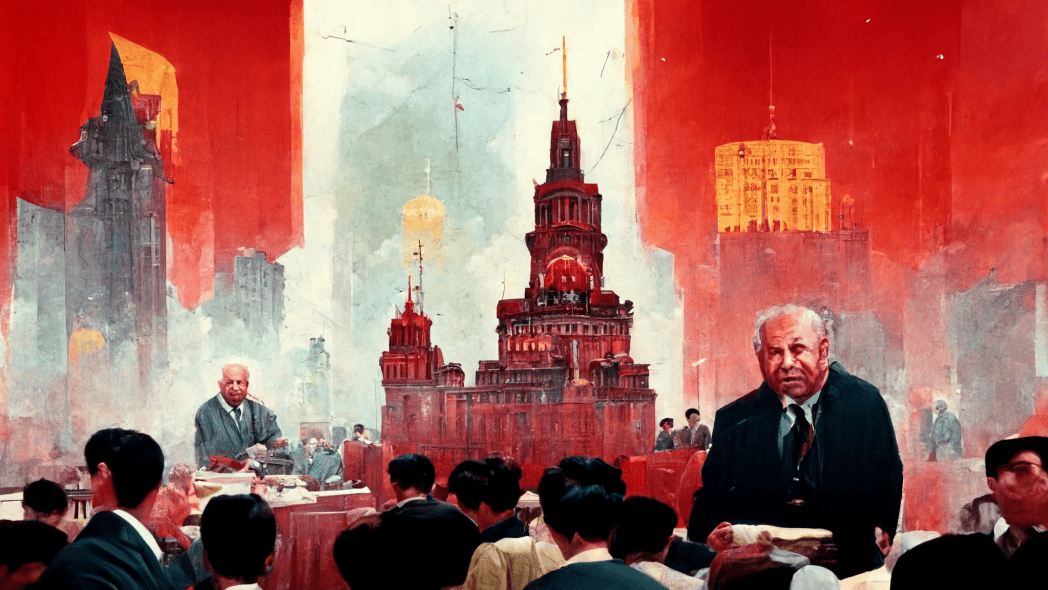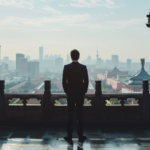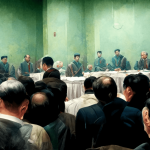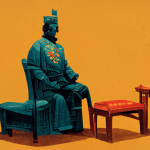The Chinese Communist Party can be thought of in two very different ways. For many analysts of Chinese politics, it is first and foremost the largest and perhaps most powerful organisation globally in contemporary politics. For others, a first connotation of a Leninist vanguard party might be that it rather represents a last remnant of a post-war past.
In that post-war past it had, of course, a big brother: The Communist Party of the Soviet Union (CPSU). In these two systems, as one was modelled on the other, we end up with historical events that share the same names. The 20th Party Congresses of these two giant Communist organisations invite an admittedly coincidental, yet interesting comparison. Given that these gatherings were held at very different times both in history as well as in the timelines of the respective parties, they stand out as an odd couple: at first as opposites, then at a closer look perhaps not so dissimilar after all.
The 20th Party Congress of the CCP, if nothing major happens in the next five years, will represent a moment in Chinese history focusing on loyalty to the new core leader and unity of the party. In contrast, the CPSU’s 20th Party Congress, held in Moscow over twelve days in February 1956, is best known for Nikita Khrushchev’s unexpected, and for many shocking speech at the last day of the congress. In this speech, Khrushchev described Joseph Stalin as a criminal and cruel leader, and he pointed to the negative aspects of any cult of personality. It became one of those speeches that marks a historical turning point in how it influenced events not only in the Soviet Union (‘the thaw’), but also in Eastern and Central Europe (in Poland and Hungary already later in 1956), and not least, in Mao’s China, that after 1956 would draw further and further away from the Soviet Union as a model of governance. With China’s recent 20th Congress of expressed unity and quiet removal of other interest groups at the top of the party, these congresses really do represent opposites.
However, only a slightly deeper look under the surface reveals some similarities too.
For one, Khrushchev’s speech referred back in time, past Stalin and to Lenin, to resume the correct path for the future for the CPSU. This seems similar to Xi Jinping’s wish for the cadres of the CCP to remember their ‘original intention’ and ‘mission’. Xi’s intention to connect his period to the earliest times of the CCP is also visible in how he brought the new Standing Committees to visit historical places as first points on the agenda in both 2017 and 2022: first to the place of the founding of the party in 1921 in Shanghai, and most recently to Yan’an, the end-point of the Long March and base of the communist movement from late 1935 to 1947.
A second similarity concerns the re-emergence of an older power ‘elite’. Mao believed that Khrushchev’s ascent to power was a sign that Stalin had not been strict enough in eliminating cadre privilege, according to for example John Fitzgerald’s new book Cadre Country (2022: 32). This approach to Khrushchev’s time as party leader sees a return of power networks that the previous leader had attempted to hold back.
In China, Mao reacted to these perceived developments in the Soviet Union by making sure the same thing could not happen in the CCP and crushed any possible new party elite during his Cultural Revolution. For example, he opposed the so-called bloodline theory Red Guards – the youth who felt that they would automatically inherit a revolutionary status from their red parents.
But after Mao’s death, and the rehabilitation of many Cultural Revolution victims, a wholly new type of outsider power elite appeared in the growing economy along with reform and opening up: business owners, entrepreneurs and investors. In the beginning of the reform era, these were often also simultaneously cadres of the CCP, and a lot of the privately made money went into cadre families. Later, the new business elite comprised also completely independent business individuals. Xi’s CCP can be seen to have met this challenge of emerging power elites in a two-part move. First, they launched the more than five-year long anti-corruption campaign targeting rich and corrupt cadres, those not ‘remembering their original intention’. More recently the CCP has gone after independent business owners who have gained some political power. The most obvious example of this is the silencing of Jack Ma, the co-founder and former CEO of Alibaba Group, in the winter of 2020.
Xi Jinping can also be seen as representing a return of an old elite himself, being the son of the revolutionary hero and CCP high-level official Xi Zhongxun. The return of this original revolutionary family even brings back the possibility of legitimating his position based on something akin to the bloodline theory, the theory opposed by Mao and a reason behind the Red Guard conflicts that led to Xi being among the many youths sent to the countryside for re-education in the late 60s.
Finally, there was that unscripted moment at the very end of the CCP’s 20th Party Congress: forcing previous leader Hu Jintao to leave the closing ceremony in front of both delegates and cameras. No matter what the reason for this surprising move was, its symbolism in ending a period of shared power with the so-called youth league faction is where the tale of the two 20th party congresses almost converges, and a new generation is consolidated through an unexpected humiliation of its previous leader.
However, before getting further carried away with these similarities: Hu was no Stalin. And Xi certainly did not speak for hours about the cruelty and illegal acts of former party leaders in October 2022. The unity of the 20th Party Congress in China mainly stands as a stark contrast to how the CPSU’s 20th Congress officially ended a cult of personality. Yet, revision and criticism vs. forging unity: both were used by Khrushchev and Xi to push through a new era from the top, one from Moscow and one from Beijing.




